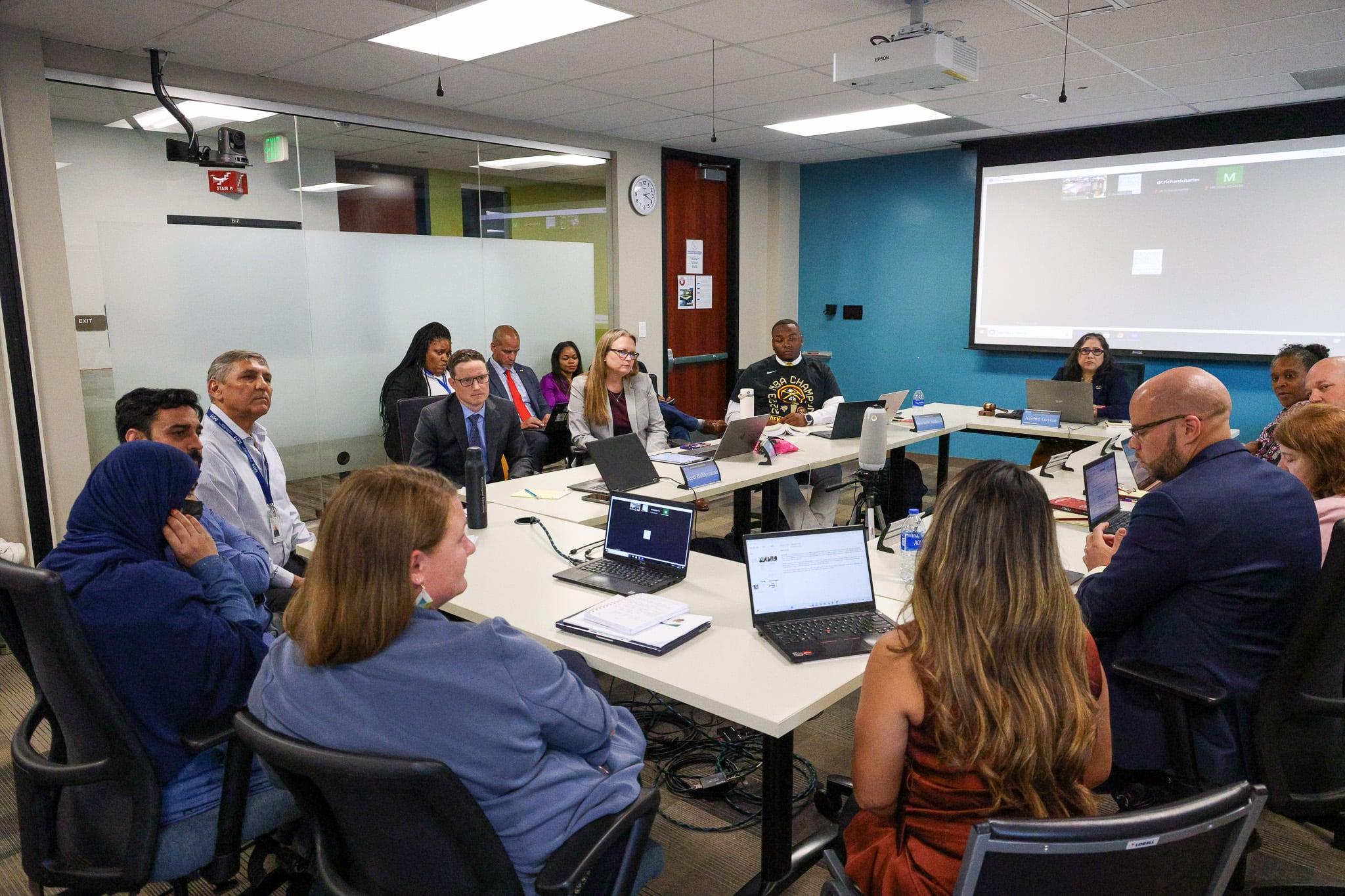The Denver school board will hold a special meeting Friday to vote on whether to release the recording of a closed-door meeting it held in March. Several news outlets, including Chalkbeat, are suing Denver Public Schools for the recording of the meeting.
DPS spokesperson Bill Good said Thursday that he didn’t know when the recording would be released if the board votes to do so.
The board held the closed-door meeting on March 23, one day after an East High School student shot and injured two deans before fleeing and later taking his own life.
The school board emerged from the five-hour meeting, which is called an executive session, and with no public discussion voted unanimously to temporarily return police officers to schools — a decision board members made permanent in June.
In a lawsuit, Chalkbeat and six other media organizations argued that the topics of the meeting were not properly noticed and that the board made its decision in private. State law says the “formation of public policy is public business and may not be conducted in secret.”
A Denver District Court judge listened to the recording last month and ordered DPS to release it. DPS is appealing that decision. Earlier this month, the coalition of news organizations asked a judge to hold DPS in contempt for not releasing the recording.
Melanie Asmar is a senior reporter for Chalkbeat Colorado, covering Denver Public Schools. Contact Melanie at masmar@chalkbeat.org.







